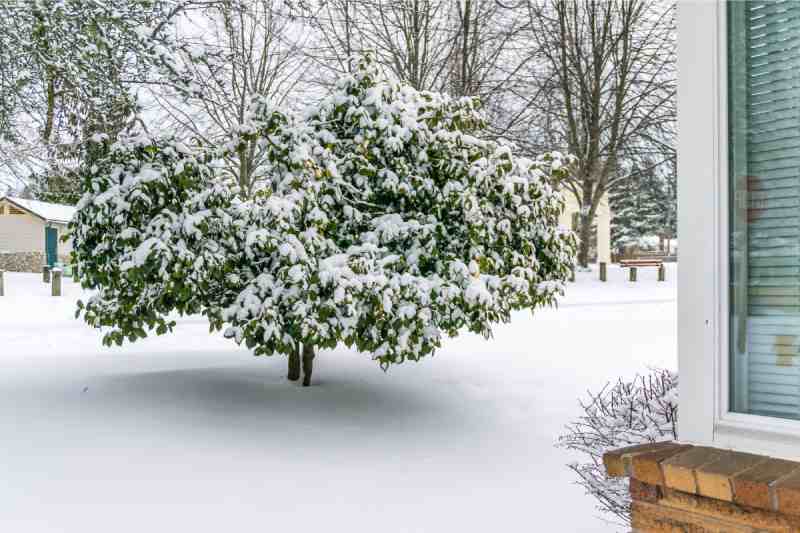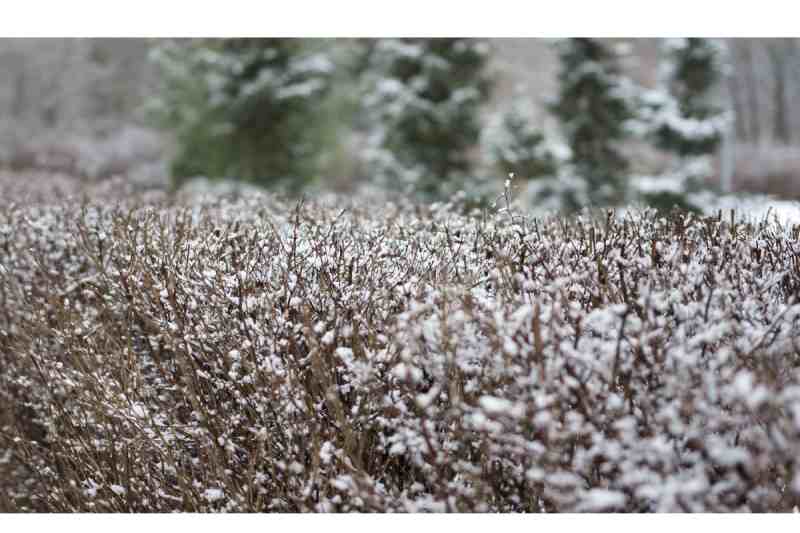
To most, fall brings to mind football, chilly nights, hot apple cider, festivals, and colorful leaves. But to those in the tree care industry, fall is a time to prepare for the seasons to come and set trees up for success in the spring. By focusing on your trees and shrubs in fall, you will have fewer issues in the spring when trees are vulnerable to new diseases and insects. That’s why every year we implement our dormant insect control program!
A common myth about insects and diseases is that they die off when the weather gets cold. This couldn’t be farther from the truth when talking about trees. Many types of insects and diseases that affect trees “overwinter” – the tree industry’s term for saying they survive throughout the winter.
The Biggest Insect Control Issues in Winter
While some insects may migrate or die off in the winter, a number of pests overwinter, meaning they enter a dormant state to endure the winter. Many of the pests that go dormant are familiar nuisances such as aphids, mites, and scale. That’s right, summer isn’t the end of these pesky bugs unfortunately. These bugs like to hide away under leaves, in yard debris, and within loose bark.
Keep in mind, not only pests overwinter! Many beneficial insects, such as the lady bug, also overwinter! Its important to have one of our professional environmental specialists treat your yard, to ensure that beneficial insects stay safe!

Why Insect Control Still Matters in Winter
Insects, pests, and egg masses tend to overwinter on the tree’s branches and bark. This leaves them in a prime position to hatch, become active in the spring, and immediately start munching on your trees and shrubs. It’s easier to put out a fire when it’s small and isolated, rather than waiting until it has engulfed a whole building; similarly, dealing with insects, diseases, and fungi in the fall is a lot easier than waiting till signs appear in the spring. By dealing with the insects while they are overwintering you drastically reduce the population that survives through the winter. This means little to no pests feeding on your trees and shrubs in the spring and summer.
So, What Should You Do?
The best way to deal with overwintering insects is to apply a dormant oil (or horticultural oil) spray. This environmentally friendly spray suffocates the overwintering insects before they have a chance to spread and damage your trees and shrubs in the spring.
Benefits of Dormant Oil:
- Safe for beneficial insects
- Safe for children and animals
- Not a poison, it simply smothers the insects, pests, and egg masses
- Reduces/suppresses overwintering population
- Safe to use on fruit trees
- Reduces the chance of spring insect issues
How Do I Know If I Need Dormant Oil?
Our Certified Arborists suggest that everyone invest in dormant oil to proactively protect their trees. But you should especially use fall dormant oils if your trees or shrubs have a history of mites, eastern tent caterpillars, scale, or aphids.
You can also help reduce the future spread of pests by tidying up your yard throughout fall and winter. Disease and fungi tend to overwinter in the tree’s fallen leaves. Then, as spring comes around, warm temperatures and rain activate these spores and re-infect the tree. The best course of action for this is to simply remove contaminated leaves to reduce the risk of spring infection.
Don’t Wait Until Spring to Combat Pests!
Allowing harmful insects to overwinter will only make things worse for you and your plants in the spring. Your trees and shrubs will thank you for the extra layer of protection during their vulnerable dormant stage. Call our team today to learn more about our dormant insect control options! Trust us, future you will thank you!



